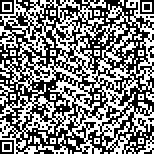郑泽瑞,付勤,周敏,等.不同介入时机的综合康复干预对创伤性脑损伤患儿运动功能的影响[J].中华物理医学与康复杂志,2024,46(11):983-987
扫码阅读全文

|
| 不同介入时机的综合康复干预对创伤性脑损伤患儿运动功能的影响 |
|
| |
| DOI:10.3760/cma.j.cn421666-20240424-00306 |
| 中文关键词: 创伤性脑损伤 综合康复 介入时机 运动功能 |
| 英文关键词: Traumatic brain injury Rehabilitation timing Motor functioning |
| 基金项目:深圳市科创委基础研究面上项目(JCYJ20190809173611515);深圳市医疗卫生三名工程项目资助(SZSM202211034) |
|
| 摘要点击次数: 2489 |
| 全文下载次数: 2485 |
| 中文摘要: |
| 目的 探讨不同介入时机的康复干预对创伤性脑损伤(TBI)患儿运动功能的影响。 方法 选取入住儿科重症监护室(PICU)的TBI患儿71例,按照随机数字表法将其分为对照组(36例)和观察组(35例)。对照组和观察组分别于入院15~30 d、入院2~14 d介入综合康复干预,包括关节活动度训练、多感官刺激训练、低频电刺激、针刺疗法。干预前及干预4周、12周、24周后,采用Fugl-Meyer量表(FMA)、改良Ashworth量表(MAS)、儿童功能独立性评定量表(WeeFIM)对2组患儿的肢体运动功能、肌张力、功能独立性进行评定。计算2组患儿干预期间的康复中断发生率。 结果 与组内干预前比较,2组患儿干预4周、12周、24周后的FMA评分、WeeFIM评分显著增加(P<0.05)。与对照组干预后同时间点比较,观察组FMA评分[干预12周(76.23±10.55)分、干预24周(88.51±7.45)分]、WeeFIM评分[干预12周(76.83±7.27)分、干预24周(91.60±8.43)分]较高(P<0.05),肌张力评级较为优异(P<0.05)。2组患儿干预期间的康复中断发生率比较,差异无统计学意义(P>0.05)。 结论 TBI患儿入院2~14 d内介入综合康复干预,能有效改善运动功能,提高功能独立性。 |
| 英文摘要: |
| Objective To document any impact of the timing of rehabilitation interventions on the recovery of motor function among children after a traumatic brain injury (TBI). Methods Seventy-one children with a TBI were randomly divided into a control group (n=36) and an observation group (n=35). All received comprehensive rehabilitation-15 to 30 days after admission for those in the control group and 2 to 14 days after admission for the observation group. It included joint range-of-motion training, multi-sensory stimulation training, low-frequency electrical stimulation, and acupuncture. Before the experiment and 4, 12 and 24 weeks afterward, everyone′s motor functioning, muscle tone, and functional independence were quantified using the Fugl-Meyer Assessment (FMA), the Modified Ashworth Scale (MAS), and the WeeFIM pediatric functional independence measure. Results Four weeks after the intervention the average FMA and WeeFIM scores of both groups had already increased significantly. At 12 and 24 weeks the average FMA and WeeFIM scores of the observation group were significantly higher than the control group′s averages. Muscle tone was then also significantly better on average. There was no significant difference in the incidence of rehabilitation interruptions between the two groups. Conclusion Early comprehensive rehabilitation intervention within 2 to 14 days of admission can effectively better the motor functioning and functional independence of pediatric TBI patients. |
|
查看全文
查看/发表评论 下载PDF阅读器 |
| 关闭 |